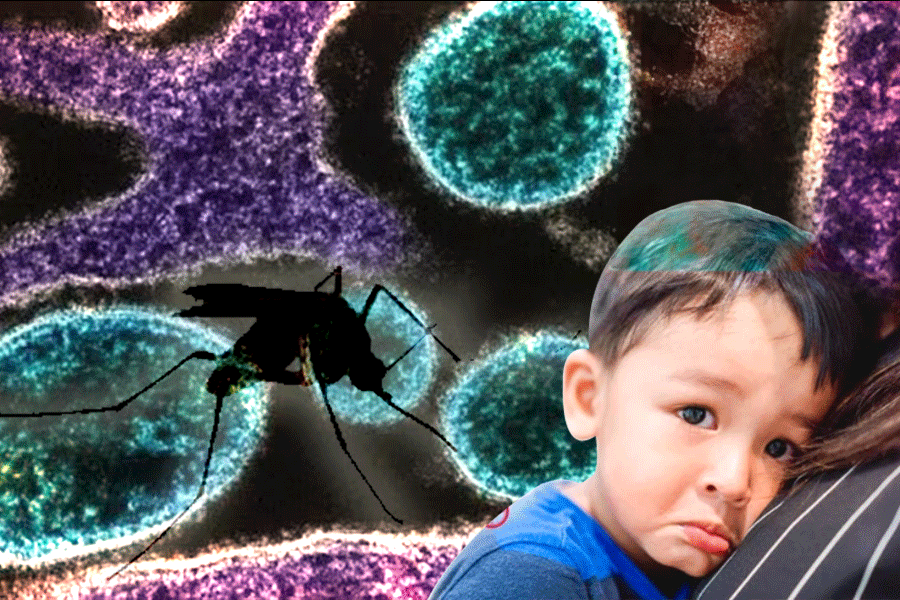Chandipura virus has claimed the lives of 28 children under the age of 14 in Gujarat since the first case was reported in July, the state legislative assembly was informed on Wednesday.
Responding to a ‘short notice question’ by AAP MLA Umesh Makwana, health minister Rushikesh Patel told the House that Gujarat had so far reported 164 cases of viral encephalitis, caused by certain pathogens including the Chandipura virus, with 101 children succumbing to the infection.
Of these 164 cases detected so far, 61 were caused by the Chandipura virus, he said.
Chandipura virus causes fever, with symptoms similar to flu and acute encephalitis (inflammation of the brain). It is transmitted by vectors like mosquitoes, ticks and sandflies.
He said the sandfly, which carries the Chandipura virus, lives in the cracks of mud houses that are very common in the hinterland.
“So far, 101 children under the age of 14 have died due to acute encephalitis. Of these, 28 have died due to Chandipura virus infection, while 73 succumbed to encephalitis caused by other viral infections,” said Patel.
The minister said 63 children were discharged after treatment, while four were still under medical care.
The situation is under control, he said and stressed that no new case had been reported in the past week and no death had been reported for the last 12 days.
According to the minister, the government has launched a drive across the state for vector control and containment of the Chandipura virus.
Under this drive, health teams surveyed over 53,000 houses in areas from where viral encephalitis and Chandipura cases had emerged.
Malathion powder, a pesticide, has been sprinkled on over 7 lakh mud houses in villages for disease control, he said, adding that liquid pesticide was also sprayed in nearly 1.58 lakh houses.
Since children are more vulnerable to this virus, Malathion powder and liquid pesticide were also sprayed on nearly 40,000 schools and over 36,000 Anganwadis in affected districts.
Patel said that the Gandhinagar-based Gujarat Biotechnology Research Centre (GBRC) is conducting research to find out the virus other than Chindipura that caused encephalitis and claimed children's lives.
Except for the headline, this story has not been edited by The Telegraph Online staff and has been published from a syndicated feed.










